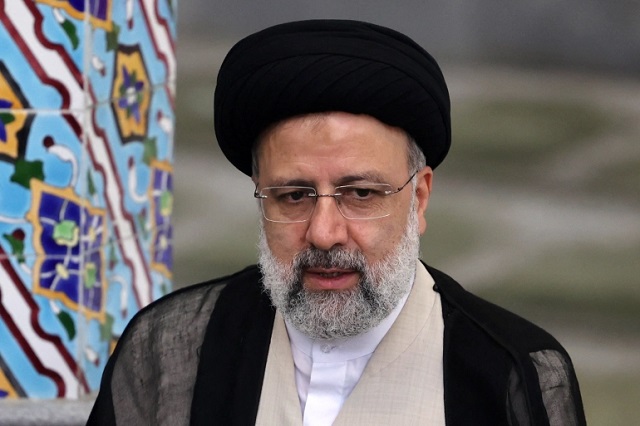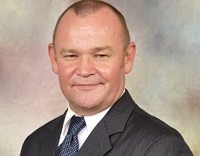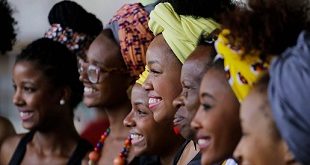
Promise of economic opportunities, genuine partnerships, a more inclusive world order
COMMENT | CHRISTOPHER BURKE | The visit by President Ebrahim Raisi to Kenya, Uganda and Zimbabwe earlier this month represented a significant milestone in Iran’s flourishing engagement with Sub-Saharan Africa. The diplomatic mission also underscored the continent’s growing agency in global affairs.
Following decades-long sanctions imposed by Western countries, Tehran’s decision to reach out to African nations is an obvious strategic and forward-thinking move. Moreover, the resilience and innovations demonstrated by Iran in response to the sanctions provides a salient model for African nations as they examine ways to transform colonial era patterns of social, economic and political dependence.
Iran’s engagement with Africa presents economic opportunities for all the countries involved and the potential for genuine partnerships that reflect shared values of independence and sovereignty. The delegation accompanying President Raisi during his visit indicated Iran’s dedication to deepening engagement with Africa. The presence of Iran’s foreign minister and senior business representatives emphasised Tehran’s serious intent, recognition of Africa’s immense potential and the desire to build mutually beneficial relationships.
The emerging partnership between Iran and Africa already encompasses trade across a broad range of commodities. Iran currently exports oil, petro-chemicals, pharmaceuticals, iron and steel products, textiles, construction materials and machinery to countries across Sub-Saharan Africa, and imports agricultural products such as coffee, tea, fruits and vegetables from Uganda, processed foods and textiles from Kenya, and tobacco, cotton, gold and platinum from Zimbabwe.
Drawing parallels with the Cold War-era Non-Aligned Movement, Iran’s diplomatic relations with Africa underline a more assertive approach in the shifting global balance of power. As Russia re-calibrates its engagement with Africa and other influential players such as China, Japan and South Korea expand their presence, African nations are strategically positioning themselves to master their own destinies.
President Raisi’s visit symbolises Africa’s growing assertiveness in global affairs. As African nations navigate the world stage, they are actively positioning themselves to define their own future. By fostering partnerships with Iran and other non-Western powers, African states are signaling their capacity and readiness to move beyond historical dependencies and engage on the world stage as equals, free from the shackles of external influence.
The rise of African agency is a clear testament to the continent’s evolving identity and potential. No longer content to be a passive recipient of aid, Africa is progressively transforming into an active player in international affairs. Countries such as Rwanda, Nigeria and South Africa are stepping forward as regional leaders, contributing to peacekeeping efforts, championing economic initiatives and demanding greater representation.
The potential of Africa’s market is astounding. The continent currently has a population of 1.4 billion people, projected to double by 2050. Earlier this year, the Africa Development Bank announced projections for real GDP growth at 4 percent across the continent in the 2023-2024. Growth in Africa is only marginally behind projections of 5.3 percent growth in East Asia and substantially higher than 1.3 percent predicted by the IMF for advanced economies in Europe and North America over the same period.
While access to credit, lack of infrastructure and challenges associated with bureaucracy and corruption continue to present serious challenges to economic growth and development–opportunities abound. Africa’s young and vibrant population represents a vast market that holds promise for economic growth and investment. As sanctions continue to hinder Iran’s economic progress, the partnership with Africa represents a lifeline to diversify trade and foster sustainable economic development.
During the visit, President Raisi stressed the importance of value addition to export of raw materials and signed four Memorandums of Understanding (MOUs); on visa exemptions, agricultural cooperation, the establishment of a joint permanent intergovernmental committee and a joint political statement. Iran’s Ambassador to Uganda Majid Saffar stated that additional MOUs will be signed during an upcoming meeting of the intergovernmental committee in Tehran.
President Museveni expressed a strong interest in the development of barter trade of goods and services between the two countries. Of particular interest to Uganda is Iran’s experience and potential support for the country’s fledgling oil and gas sector. With the recent expiration of the project framework agreement (PFA) between the government and the American-led Albertine Graben Energy Consortium (AGRC), Uganda continues to face challenges establishing a crude oil refinery and pipeline projected to cost approximately US$4-5 billion. The Government of Uganda and financial institutions are under growing pressure from some European countries and international organisations not to move forward with the development of the energy sector due to environmental concerns.
President Raisi’s visit to Kenya, Uganda and Zimbabwe marks a promising era in Africa-Iran relations characterised by a shared commitment to independence, self-determination, cooperation and mutual respect. Iran and the African states are demonstrating a commitment to dialogue, cultural exchange and collaboration across a variety of sectors while exercising their influence in international relations, strengthening diversity and contributing to a more inclusive world order.
******

Christopher Burke is the managing director of WMC Africa, a communications and advisory agency in Kampala, Uganda. Christopher has spent almost 30 years working on a broad range of issues in international relations, development, communications, governance and peace-building in Asia and Africa.
 The Independent Uganda: You get the Truth we Pay the Price
The Independent Uganda: You get the Truth we Pay the Price



